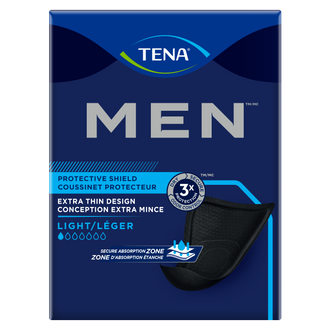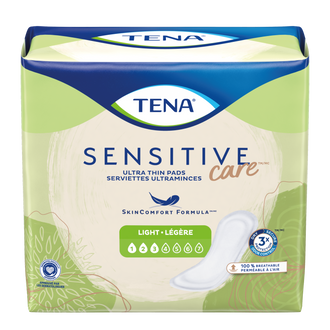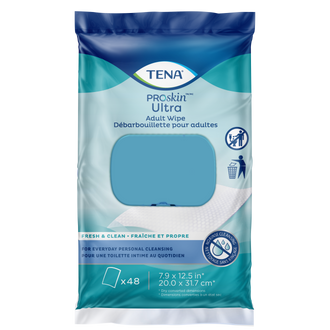Oct 25, 2024
If you're in your 30s or early 40s, and have been experiencing symptoms like irregular periods, unexpected hot flashes, and maybe even some mood swings, you might wonder, "Could this be menopause already?" Sounds familiar? Then, there’s a chance you’re dealing with early or premature menopause.
We'll break down what that means, exploring the causes, symptoms, and how it might affect your health, so you can understand what's happening and what to expect.
What Triggers Early Menopause?
Early and premature menopause can happen when a person assigned female at birth (AFAB) goes through menopause earlier than expected.1
There is a difference between early and premature menopause, and it all comes down to when it happens.1 Menopause is when your periods stop for good.1 If it happens before age 45, it’s called early menopause. But if it happens before age 40, it’s known as premature menopause.1
Many of the factors that lead to premature menopause can also cause early menopause.1 Anything that affects the ovaries or disrupts estrogen production can trigger menopause.1
Here are some common causes of early menopause:
1. Genetic Factors
If there is no clear medical reason for early menopause, genetics is often the culprit.2 If it runs in your family, you might be more likely to experience it too. Knowing your family’s medical history can help you understand your risk and prepare for early menopause if needed.2
2. Chromosome Disorders
Certain chromosome disorders, like Turner syndrome and Fragile X syndrome, can lead to early menopause.2 In Turner syndrome, one of the X chromosomes is incomplete, affecting the ovaries and possibly causing early menopause. Similarly, women who have or carry the gene for Fragile X syndrome might also experience menopause earlier. If this applies to you, talking to your doctor about genetic testing could be helpful.2
3. Autoimmune Conditions
Autoimmune diseases, like rheumatoid arthritis, or thyroid disease, can also lead to early menopause. In these cases, the immune system mistakenly attacks parts of your body, and inflammation can impact the ovaries.2
4. Premature Ovarian Failure
Premature ovarian failure (POF) happens when the ovaries stop working before age 40, triggering early menopause.3 Unlike natural menopause, which occurs gradually, POF can be sudden and is often linked to factors like chemotherapy, autoimmune issues, or genetic disorders. If you’re affected, it’s essential to seek proper treatment for both fertility and hormone concerns.3
5. Epilepsy
People with epilepsy may face a higher risk of primary ovarian insufficiency, which can lead to early menopause. If you have epilepsy, it’s worth discussing it with your doctor, as it can affect your reproductive health.2
6. Lifestyle Influences
Your lifestyle choices can also affect when menopause starts.2 For example, smoking and having a low body mass index (BMI) can both contribute to an earlier menopause.2 By keeping a healthy lifestyle, you might be able to delay the onset of menopause and support your overall reproductive health.
How Does Early Menopause Affect You?
Early menopause can bring a range of changes to your life, both physical and emotional.
Physically, you might experience symptoms like hot flashes, night sweats, and urinary urgency.1,2 The drop in estrogen levels that accompanies menopause can cause your pelvic muscles to weaken, often leading to urinary incontinence.4 This is a common issue for many women going through menopause, and managing these symptoms is important for maintaining your quality of life.
TENA provides a variety of products designed to help manage urinary incontinence, which can be a concern during early menopause. The range includes incontinence pads and liners as well as incontinence underwear, each with different absorbency levels to cater to your unique needs.
For more information on how TENA products can support you during this time, click here.
Apart from the physical symptoms, early menopause can be challenging on an emotional level too, often leading to mood swings, anxiety or depression.1
Adjusting to these changes can be tough, and seeking support from healthcare professionals and loved ones can make a big difference.
What's the Youngest Age for Menopause?
Menopause typically starts in women in their late 40s to early 50s, but early menopause occurs before age 45.2 If menopause begins before age 40, it is considered premature.2 Distinguishing between early menopause and other reproductive issues is crucial for proper diagnosis and management.
How Common Is Early or Premature Menopause?
Early menopause, happening before age 45, affects about 5% of women or people assigned female at birth (AFAB). Premature menopause, which occurs before age 40, is less common, affecting around 1%. Menopause in your 20s is very rare, impacting only about 0.1% of AFAB individuals. Knowing how often these conditions occur can help with understanding and managing them better.1
References
1. Cleveland Clinic. ‘Premature and Early Menopause’. 6 September 2022. Accessed 20 August 2024. Available from: https://my.clevelandclinic.org/health/diseases/21138-premature-and-early-menopause
2. Healthline. ‘What Causes Early Menopause?’. 11 January 2022. Accessed 20 August 2024. Available from: https://www.healthline.com/health/menopause/causes-early#care
3. MedlinePlus. ‘Primary Ovarian Insufficiency’. 13 August 2024. Accessed 20 August 2024. Available from: https://medlineplus.gov/primaryovarianinsufficiency.html#:~:text=Primary%20ovarian%20insufficiency%20(POI)%2C,as%20they%20transition%20to%20menopause.
4. Healthline. ‘Menopause and Urinary Incontinence’. 1 April 2019. Accessed 20 August 2024. Available from: https://www.healthline.com/health/menopause/urinary-incontinence#outlook







